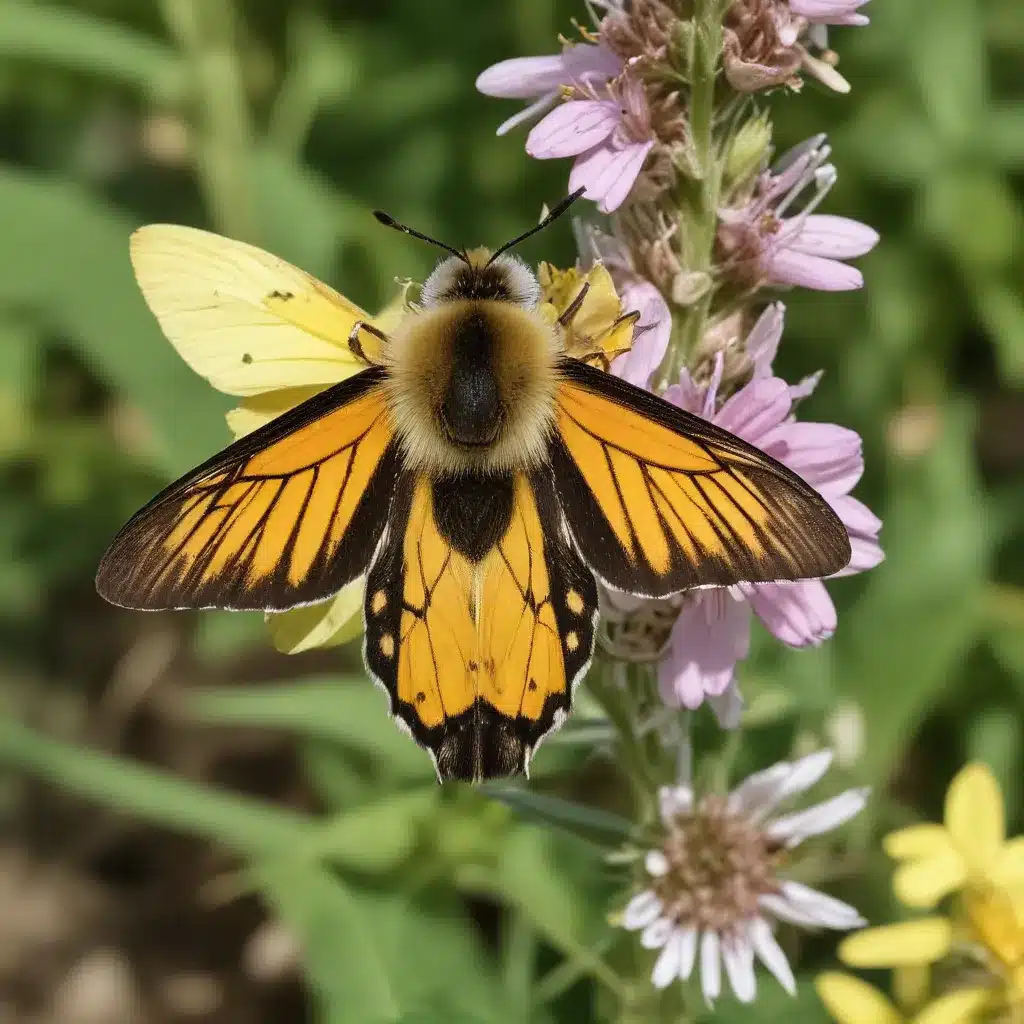
Educational Projects for Kids: Exploring the Farm’s Pollinator Habitats
At Crooked Pines Farm, we believe in fostering a deep connection between children and the natural world around them. One of the most captivating aspects of our farm is the diverse array of pollinators that call our fields and gardens home. From buzzing bees to fluttering butterflies, these incredible creatures play a vital role in the health and productivity of our farm ecosystem.
By engaging kids in hands-on exploration of our pollinator habitats, we can ignite their curiosity, deepen their understanding of the natural world, and inspire them to become stewards of the environment. In this article, we’ll dive into a variety of educational projects and outdoor adventures that will have your little ones abuzz with excitement.
Pollinator Habitats on the Farm
Our farm is teeming with a rich diversity of pollinator species, each with its own unique role to play. Identifying pollinators and understanding their habitat requirements is the first step in nurturing the health of these incredible creatures.
On our farm, we’re home to numerous bee species, including honey bees, mason bees, and bumble bees. These industrious insects are essential for the pollination of our fruit trees, vegetable crops, and flowering plants. We also have a vibrant population of butterflies and moths, such as the iconic monarch and the delicate swallowtail, which flit from bloom to bloom, transferring pollen as they go.
Beyond the winged wonders, our farm is a haven for other vital pollinators, including hummingbirds, bats, and even some beetles and flies. Each of these species has specific habitat needs, from the nectar-rich flowers they feed on to the sheltered nesting sites they require.
Maintaining a diverse array of native plants, providing water sources, and minimizing the use of pesticides are just a few of the ways we work to support the health and well-being of our pollinator populations. By understanding the unique needs of these creatures, we can create an environment that allows them to thrive.
Hands-on Learning Activities
Engaging kids in hands-on activities is one of the most effective ways to spark their interest in the world of pollinators. At Crooked Pines Farm, we offer a variety of educational projects that allow children to explore, investigate, and get up close and personal with these amazing creatures.
One of our most popular activities is the Pollinator Scavenger Hunt. Armed with a checklist of local pollinator species, kids can venture out into our fields and gardens, searching for and identifying the different bees, butterflies, and other pollinators they encounter. This activity not only helps kids develop their observation skills but also teaches them to appreciate the incredible diversity of life that calls our farm home.
Another hands-on project is the construction of bee hotels. These simple structures provide nesting sites for solitary bee species, giving kids a chance to learn about the unique life cycles and behaviors of these important pollinators. With a little guidance, children can assemble their own bee hotels using natural materials like bamboo, twigs, and dried plant stems.
Finally, no pollinator-focused activity would be complete without the opportunity to plant a pollinator-friendly garden. Kids can get their hands dirty as they select and sow a variety of nectar-rich and pollen-producing plants, creating a vibrant oasis that will attract a diverse array of pollinators to our farm.
Importance of Pollinator Conservation
Pollinators are the unsung heroes of the agricultural world, responsible for the production of countless fruits, vegetables, and other crops. By understanding the critical ecosystem services they provide, we can better appreciate the vital role they play in sustaining our food systems.
At Crooked Pines Farm, we prioritize pollinator-friendly farming practices, such as incorporating cover crops, companion planting, and organic pest management. These techniques not only support the health of our pollinator populations but also contribute to the overall productivity and resilience of our farm.
Engaging kids in pollinator conservation efforts is essential for ensuring a brighter future for these incredible creatures. By fostering a sense of wonder and stewardship in the next generation, we can inspire them to become advocates for the protection of pollinators and their habitats.
Outdoor Exploration and Observation
One of the best ways to learn about pollinators is to observe them in their natural habitats. At Crooked Pines Farm, we encourage kids to immerse themselves in the great outdoors, exploring the diverse ecosystems that support our pollinator populations.
Through monitoring activities, kids can play an active role in tracking the health and abundance of pollinators on our farm. By collecting data on the number and species of pollinators they observe, they can contribute to citizen science projects and help researchers better understand the challenges facing these vital creatures.
To aid in pollinator identification, we provide detailed field guides and nature journals that allow kids to document their observations and learn about the unique characteristics of different pollinator species. Engaging in these hands-on exploration and recording activities helps children develop a deeper appreciation for the natural world and the diverse life that inhabits it.
Crooked Pines Farm is committed to fostering a love of nature and a sense of environmental stewardship in the next generation. By inviting kids to explore our pollinator habitats and participate in conservation efforts, we hope to inspire them to become champions for the protection of these incredible creatures. So, grab your magnifying glasses, put on your explorer hats, and join us on an adventure through the vibrant world of farm pollinators!


